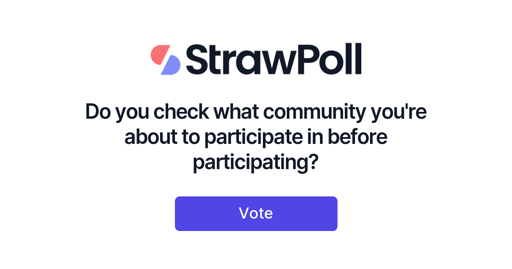A $2 sandwich?
TʜᴇʀᴀᴘʏGⒶʀʏ⁽ᵗʰᵉʸ‘ᵗʰᵉᵐ⁾
Being a bodyless head with a freak long tongue is not only okay—it can be an exciting opportunity
- 18 Posts
- 303 Comments

 3·12 days ago
3·12 days agoAwe, thank you ☺

 1·12 days ago
1·12 days agoLuckily in my US state (Florida), it’s only legally required for persons under 18, and I don’t work much with minors anymore

 8·12 days ago
8·12 days agoI feel like bad practices are the norm, but maybe my experience is skewed due to living in Florida lol (a blue part, but still)
Most therapists I’ve encountered/been familiar with obv have new clients sign consent forms, but never actually review it with them; they create a treatment plan for them and say ‘here, sign this’; they tell me it’s inappropriate to list my own diagnoses and politics on my PsychologyToday page; they argue that bartering is less ethical than charging $150; and I’ve yet to meet someone IRL (therapist or otherwise) who wasn’t surprised (and often lowkey sketched out) when I say I do sessions at parks & in homes.
Also I forgot to add this one- other therapists are always absolutely floored when I tell them I don’t do involuntary commitals

 111·13 days ago
111·13 days agoIt’s all so second nature to me at this point that I had to spend a good bit of time thinking about all the ways I incorporate my anarchist values in my practice. I’m sure there are more, but these are the most significant ones I could think of
-
No insurance, so I’m not forced to pathologize my clients and I’m not beholden to a third-party constraining what we’re allowed to work on, etc
-
Extremely low cost, with no means testing, and I even accept bartering
-
Full therapeutic self-disclosure to help dissolve the power dynamic
-
Conduct sessions in neutral or client-centered environments (I have no public office- I meet clients virtually, outdoors, or in their home)
-
Peer accountability with a fellow anarchist in the medical field
-
Consent and boundaries are iterative and explicit
-
Session structure, modalities, etc, are collaboratively negotiated
Edit: I realize this list probably sounds normal and benign to leftists, but libs react very strongly to these things
-

 20·13 days ago
20·13 days agoI was about to say “what about therapy” and then I remembered how almost every therapist besides me does therapy (and how they react when they learn how I do things…). I know I can’t eliminate all the spooks, but I do try my best

 7·13 days ago
7·13 days agoWhy are you using a new(/throwaway?) account?

 1·13 days ago
1·13 days ago
I’m just fuckin around, friend. I know it’s illegal to punch Nazis 😅 Sorry for bothering you!

 162·14 days ago
162·14 days agoIt’s absolutely not legal.
Sounds made up. You got a source for that claim?

 4·14 days ago
4·14 days agoI can sleep without a blanket, but only if I’m wearing at least pants, socks, and a shirt, so idk if that counts lol

 1·14 days ago
1·14 days agoLike I said, I was just doing it for fun and happened to make some money along the way with literally no additional effort. Convenient that you ignored the more relevant part

 2·14 days ago
2·14 days agoIt’s really fucking weird that you just keep assuming I have no relevant experience. Why do you do that?
This post is largely about writing; my book has been pre-ordered by several local bookstores.
Also, I made over $100 last year off my art without even trying- just doing it for fun

 43·15 days ago
43·15 days agoOP, ignore this comment- it’s stupid

 7·15 days ago
7·15 days agoYou’ve never heard of Fast Potato VPN? It clearly reeks of high standards

 11·19 days ago
11·19 days agoI used to think about this a lot and, despite having largely resolved my relevant trauma now, I think my answer is still the same.
I would try to convince my parents that I’m the Antichrist, and if that didn’t work, I’d just stab my dad









5/7 of the things listed are explicitly related to attention and/or hyperactivity